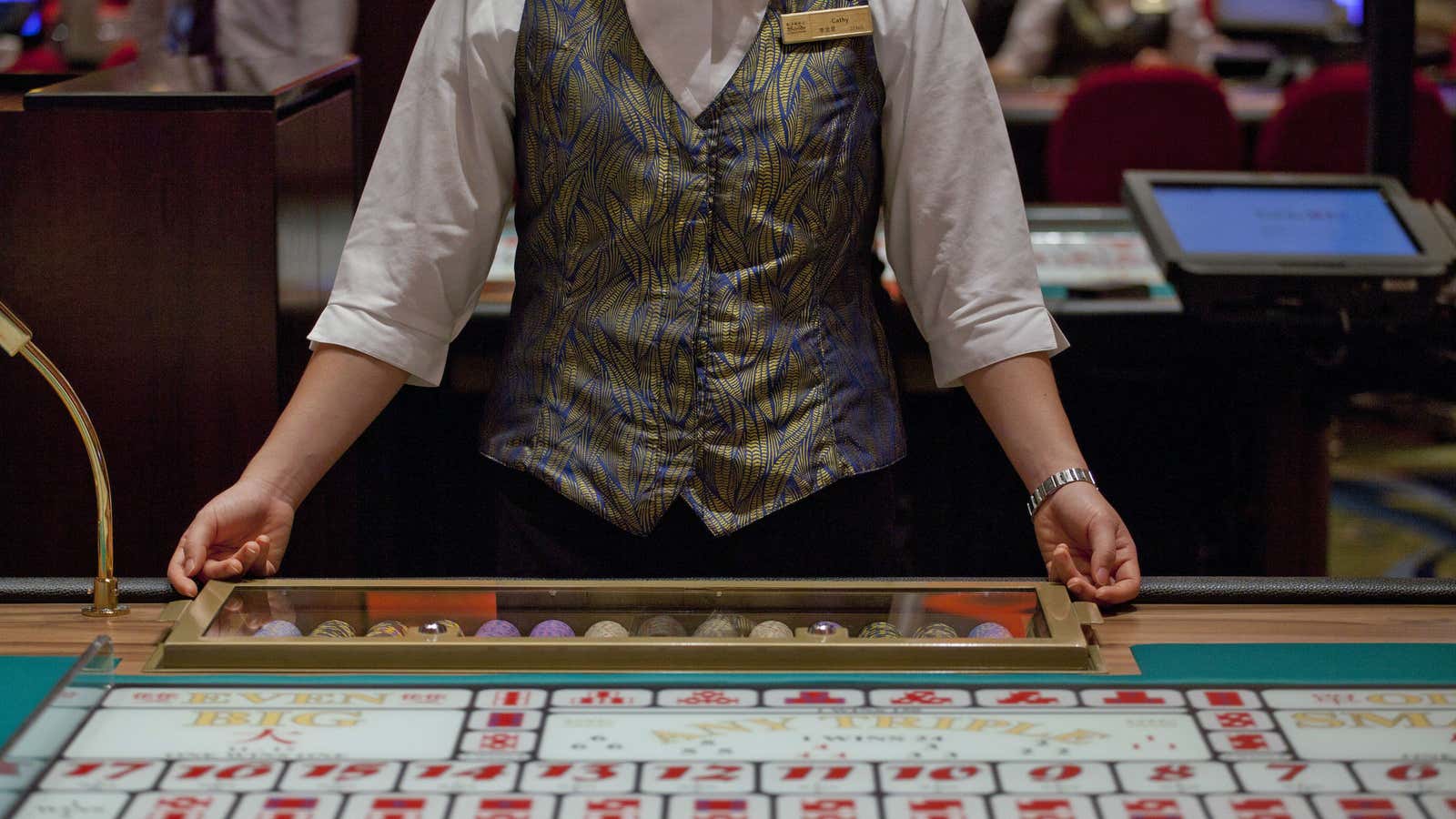South Korea is carving out a space for itself in Asia’s increasingly crowded gambling scene. Today Seoul granted preliminary approval to a consortium of investors, including Las Vegas’s Caesars Entertainment, the largest owner of US casinos, to build an $805 million resort (paywall) and casino on Yeongjong island off the west coast of Incheon. The casino, which will serve only foreigners, is likely to be filled with Chinese tourists.
Asian countries have been scrambling to attract wealthy Chinese gamblers. Different from Macau and Singapore, which cater to China’s richest high rollers, South Korea has been targeting China’s less affluent gamblers. The new operation, if it goes ahead, will be an addition to 16 “foreign only” casinos already in the country, mostly in Seoul and Jeju, a popular island vacation spot. (Korean bettors have to travel to a casino on a remote mountain resort, Kangwon Land.)
South Korea’s gaming revenues—$2.7 billion in 2013—are much lower than Macau’s $45 billion or Singapore’s $6.4 billion, but its edge over those markets could grow. South Korea offers a lower minimum bets—for example, bets are around $40,000 per person in a VIP room, compared to $400,000 in Macau (paywall). Already, Chinese tourists made up 41% of visits to the country’s casinos in 2012.
Pending casino projects should help the casinos appeal to Chinese gamblers by offering more premium treatment. The Yeongjong casino will offer Chinese gamblers visiting Korea new luxury amenities like restaurants, spas, shows and the ability to host large groups. Sega Sammy, a maker of video games and pachinko machines (a Japanese version of the slot machine), is also trying build a hotel, shopping mall, and a foreigners-only casino in Incheon.
One problem for South Korea is that other countries and casino operators are starting to have the same idea. Vietnam and the Philippines have been building casino resorts that are likely to be much cheaper than Macau’s or Singapore’s. Japan is working on legalizing casinos before the Summer Olympics in Tokyo in 2020, and even Macau is working on offering cheaper entertainment for middle-class families.
